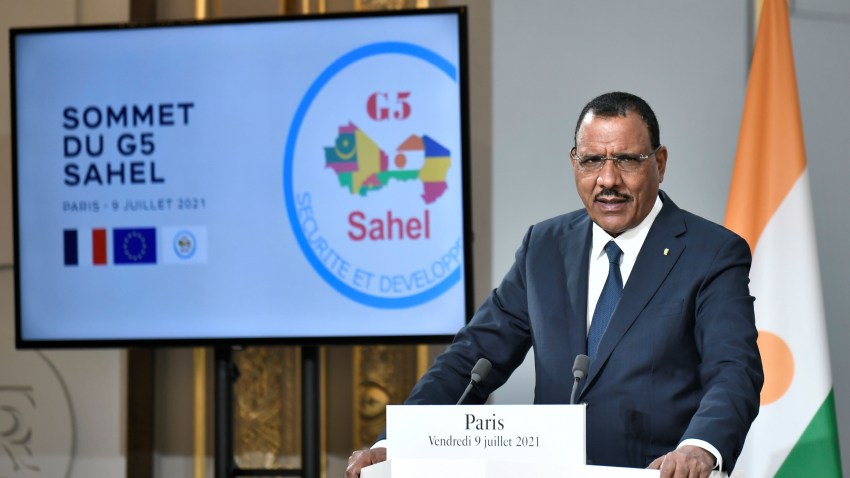Since the withdrawal of French troops from Mali last year, many questions have been raised about the future of France’s military intervention in the Sahel and how that might affect the region’s fight against violent Islamist extremists. Two factors will have significant implications for the effectiveness of both efforts: Niger’s emerging role as the linchpin of France’s reconfigured strategy and the diplomatic tensions that have emerged in recent years between Niger and Mali.
The French government launched Operation Barkhane—a regional counterterror and counterinsurgency operation—in 2014 to combat violent Islamist extremist groups that had taken over swathes of territory in northern Mali and spread from there into neighboring countries, including Burkina Faso and Niger. In the decade since then, insecurity in the Sahel has killed and injured thousands and displaced millions more.
The security crisis in the Sahel is fueled by political instability, weak governance and historical grievances, as well as the region’s underlying poverty. The region is among the poorest in the world, with extreme weather conditions, low agricultural productivity and limited access to essential services. Intercommunal violence has also been on the rise, fueled by competition for land and resources between different ethnic groups, leading to further displacement and a breakdown of social cohesion in the region, particularly in Mali, Burkina Faso and Niger.

